Beats Flex Meets Tech Innovator
Iddris Sandu is coding a movement

Is Beats Flex fit for a tech innovator? Yes.
The first thing you need to know about 23-year-old tech innovator Iddris Sandu, featured in music videos, tech magazines and billion dollar corporations alike, is that he doesn’t “try” anything. Ask him if he’s “trying” to foster a Black revolution through technology, or if he’s “trying” to create a new space for Black freedom, and he’ll make sure you know he’s not “trying” it — he’s doing it.
“It’s important that we always use positive frequencies and words that are based on affirmation and not condition,” Iddris says.
Is Beats Flex fit for a tech innovator? Yes.
The first thing you need to know about 23-year-old tech innovator Iddris Sandu, featured in music videos, tech magazines and billion dollar corporations alike, is that he doesn’t “try” anything. Ask him if he’s “trying” to foster a Black revolution through technology, or if he’s “trying” to create a new space for Black freedom, and he’ll make sure you know he’s not “trying” it — he’s doing it.
“It’s important that we always use positive frequencies and words that are based on affirmation and not condition,” Iddris says.
Is Beats Flex fit for a tech innovator? Yes.
The first thing you need to know about 23-year-old tech innovator Iddris Sandu, featured in music videos, tech magazines and billion dollar corporations alike, is that he doesn’t “try” anything. Ask him if he’s “trying” to foster a Black revolution through technology, or if he’s “trying” to create a new space for Black freedom, and he’ll make sure you know he’s not “trying” it — he’s doing it.
“It’s important that we always use positive frequencies and words that are based on affirmation and not condition,” Iddris says.
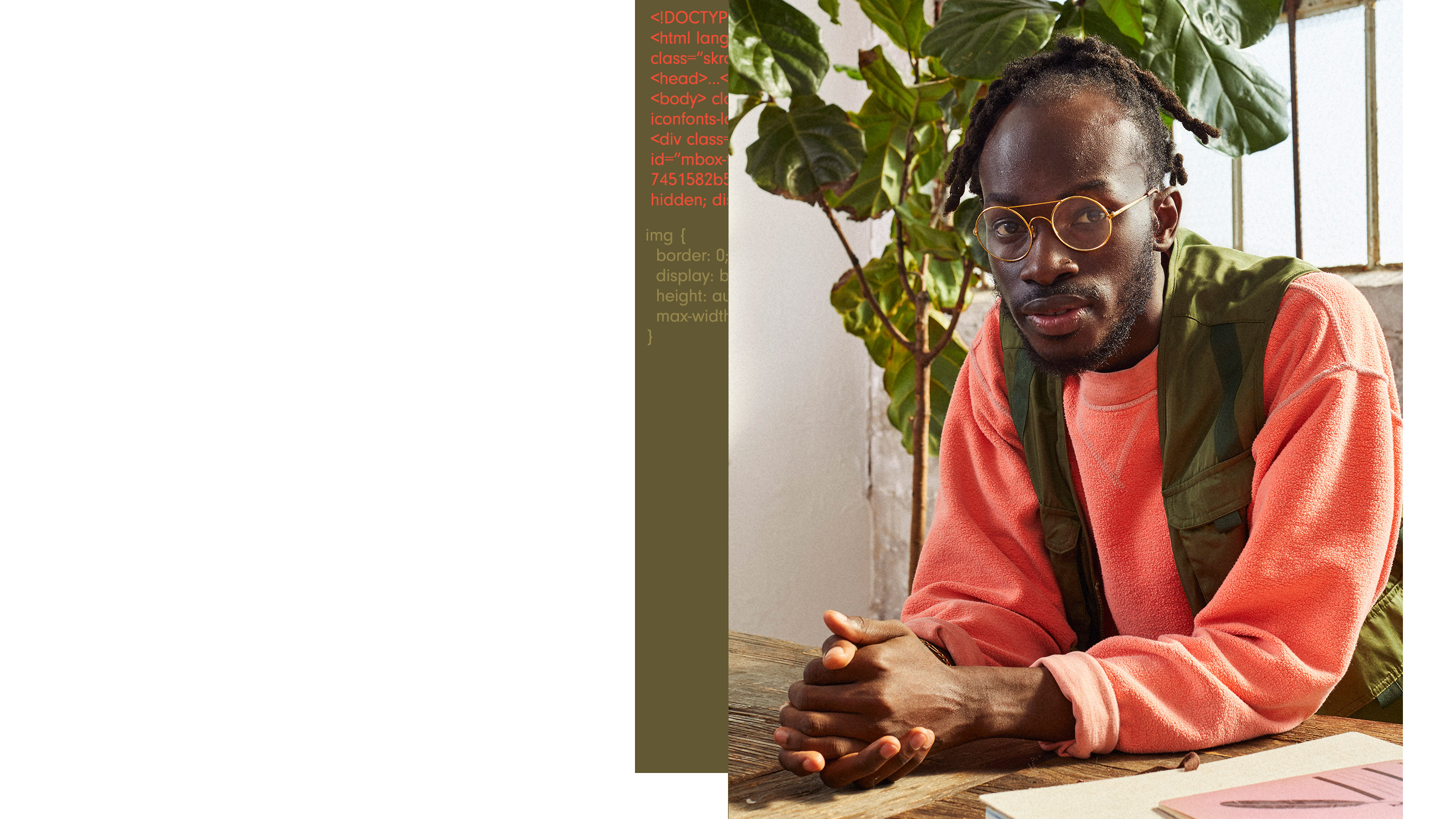
From smart retail store experiences to autonomous driving algorithms, Ghanian-born, Compton-raised Iddris does it all. Innovating and shaping the world, a line of code at a time. And music is right at the heart of his creative process.
“It’s a core foundation. It’s frequencies, harmonics, vibes, storytelling, and it’s technology,” he says. “I would be greatly misled if I loved technology but not music.”
With comfort, battery life and style, Beats Flex gives him what he needs to keep the vibes going through long sessions.
“I love the feeling of them, they’re very ergonomic and comfortable,” he says. “I really love how they can be integrated across a multitude of different things.”
From smart retail store experiences to autonomous driving algorithms, Ghanian-born, Compton-raised Iddris does it all. Innovating and shaping the world, a line of code at a time. And music is right at the heart of his creative process.
“It’s a core foundation. It’s frequencies, harmonics, vibes, storytelling, and it’s technology,” he says. “I would be greatly misled if I loved technology but not music.”
With comfort, battery life and style, Beats Flex gives him what he needs to keep the vibes going through long sessions.
“I love the feeling of them, they’re very ergonomic and comfortable,” he says. “I really love how they can be integrated across a multitude of different things.”
From smart retail store experiences to autonomous driving algorithms, Ghanian-born, Compton-raised Iddris does it all. Innovating and shaping the world, a line of code at a time. And music is right at the heart of his creative process.
“It’s a core foundation. It’s frequencies, harmonics, vibes, storytelling, and it’s technology,” he says. “I would be greatly misled if I loved technology but not music.”
With comfort, battery life and style, Beats Flex gives him what he needs to keep the vibes going through long sessions.
“I love the feeling of them, they’re very ergonomic and comfortable,” he says. “I really love how they can be integrated across a multitude of different things.”
I love the feeling of Beats Flex, they’re very ergonomic and comfortable. I really love how they can be integrated across a multitude of different things.
I love the feeling of Beats Flex, they’re very ergonomic and comfortable. I really love how they can be integrated across a multitude of different things.
I love the feeling of Beats Flex, they’re very ergonomic and comfortable. I really love how they can be integrated across a multitude of different things.
As someone whose life has taken them from Compton to Silicon Valley, to meetings with music moguls, streetwear icons, politicians and tech gurus, Iddris knows that versatility is the name of the game.
As someone whose life has taken them from Compton to Silicon Valley, to meetings with music moguls, streetwear icons, politicians and tech gurus, Iddris knows that versatility is the name of the game.
As someone whose life has taken them from Compton to Silicon Valley, to meetings with music moguls, streetwear icons, politicians and tech gurus, Iddris knows that versatility is the name of the game.
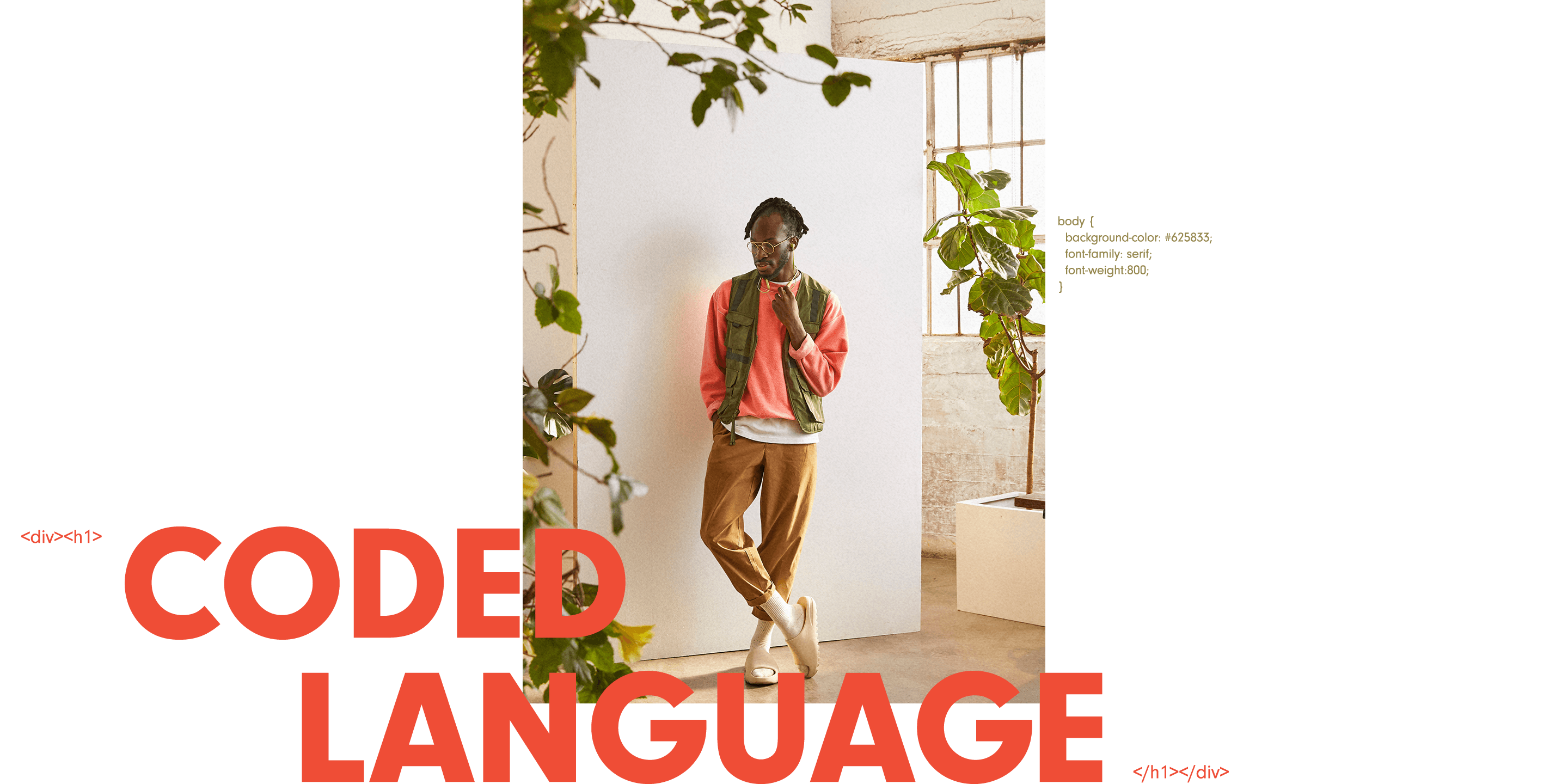
The name “Idris,” given to Iddris by his grandfather, translates in Arabic to the biblical figure “Enoch,” a descendant of Moses blessed with penmanship. His family always believed he would be a writer. But at 10 years old, when Iddris saw the first iPhone reveal in 2007, he saw his calling on stage. Then and there, he knew he wanted to be a computer programmer.
In a way, Iddris did fulfill his calling as a writer: “I write code, not letters,” he says.
He began his coding journey at the Compton Library. The shelves were largely stacked with books on “legacy” (aka no longer in use) programming languages. But when his family moved to Harbor City, he suddenly had access to books on coding languages that were current and applicable. It was a firsthand lesson in the iniquities of education.
The name “Idris,” given to Iddris by his grandfather, translates in Arabic to the biblical figure “Enoch,” a descendant of Moses blessed with penmanship. His family always believed he would be a writer. But at 10 years old, when Iddris saw the first iPhone reveal in 2007, he saw his calling on stage. Then and there, he knew he wanted to be a computer programmer.
In a way, Iddris did fulfill his calling as a writer: “I write code, not letters,” he says.
He began his coding journey at the Compton Library. The shelves were largely stacked with books on “legacy” (aka no longer in use) programming languages. But when his family moved to Harbor City, he suddenly had access to books on coding languages that were current and applicable. It was a firsthand lesson in the iniquities of education.
The name “Idris,” given to Iddris by his grandfather, translates in Arabic to the biblical figure “Enoch,” a descendant of Moses blessed with penmanship. His family always believed he would be a writer. But at 10 years old, when Iddris saw the first iPhone reveal in 2007, he saw his calling on stage. Then and there, he knew he wanted to be a computer programmer.
In a way, Iddris did fulfill his calling as a writer: “I write code, not letters,” he says.
He began his coding journey at the Compton Library. The shelves were largely stacked with books on “legacy” (aka no longer in use) programming languages. But when his family moved to Harbor City, he suddenly had access to books on coding languages that were current and applicable. It was a firsthand lesson in the iniquities of education.
I would be greatly misled if I loved technology but not music.
I would be greatly misled if I loved technology but not music.
I would be greatly misled if I loved technology but not music.
“There was a huge information gap,” he says. “Kids from Compton, kids from inner cities, aren’t given the same information — especially on how to build technology.” It made him realize how structural these disadvantages are, and how they could set inner-city kids up to be behind the curve as they competed for higher education and internship programs, not because they didn’t work hard, but because they were born in the wrong zip code.
By the time he was finishing up high school, he’d already had a dream resume: worked an internship with one of the biggest tech companies in the world, earned an award from the (previous) White House, oh, and he even developed an intricate app for his school that helped students navigate and find their classes in his high school.
“There was a huge information gap,” he says. “Kids from Compton, kids from inner cities, aren’t given the same information — especially on how to build technology.” It made him realize how structural these disadvantages are, and how they could set inner-city kids up to be behind the curve as they competed for higher education and internship programs, not because they didn’t work hard, but because they were born in the wrong zip code.
By the time he was finishing up high school, he’d already had a dream resume: worked an internship with one of the biggest tech companies in the world, earned an award from the (previous) White House, oh, and he even developed an intricate app for his school that helped students navigate and find their classes in his high school.
“There was a huge information gap,” he says. “Kids from Compton, kids from inner cities, aren’t given the same information — especially on how to build technology.” It made him realize how structural these disadvantages are, and how they could set inner-city kids up to be behind the curve as they competed for higher education and internship programs, not because they didn’t work hard, but because they were born in the wrong zip code.
By the time he was finishing up high school, he’d already had a dream resume: worked an internship with one of the biggest tech companies in the world, earned an award from the (previous) White House, oh, and he even developed an intricate app for his school that helped students navigate and find their classes in his high school.

“I was like, ‘if I can help students navigate to classes without needing guardians, especially new students, where they could just click a building and it would give them turn-by-turn directions, we could maximize productivity at this school,’” he says.
This was when he started to really grasp how he could use technology to solve problems in the real world — solution-oriented, as they say. As he looked out to the world of technology, he saw so many issues. From the lack of access to people of color, to addictive mobile behaviors. The tools he loved so much were being misused and abused with very real human costs. He knew he needed to get to work. Fast.
“I was like, ‘if I can help students navigate to classes without needing guardians, especially new students, where they could just click a building and it would give them turn-by-turn directions, we could maximize productivity at this school,’” he says.
This was when he started to really grasp how he could use technology to solve problems in the real world — solution-oriented, as they say. As he looked out to the world of technology, he saw so many issues. From the lack of access to people of color, to addictive mobile behaviors. The tools he loved so much were being misused and abused with very real human costs. He knew he needed to get to work. Fast.
“I was like, ‘if I can help students navigate to classes without needing guardians, especially new students, where they could just click a building and it would give them turn-by-turn directions, we could maximize productivity at this school,’” he says.
This was when he started to really grasp how he could use technology to solve problems in the real world — solution-oriented, as they say. As he looked out to the world of technology, he saw so many issues. From the lack of access to people of color, to addictive mobile behaviors. The tools he loved so much were being misused and abused with very real human costs. He knew he needed to get to work. Fast.
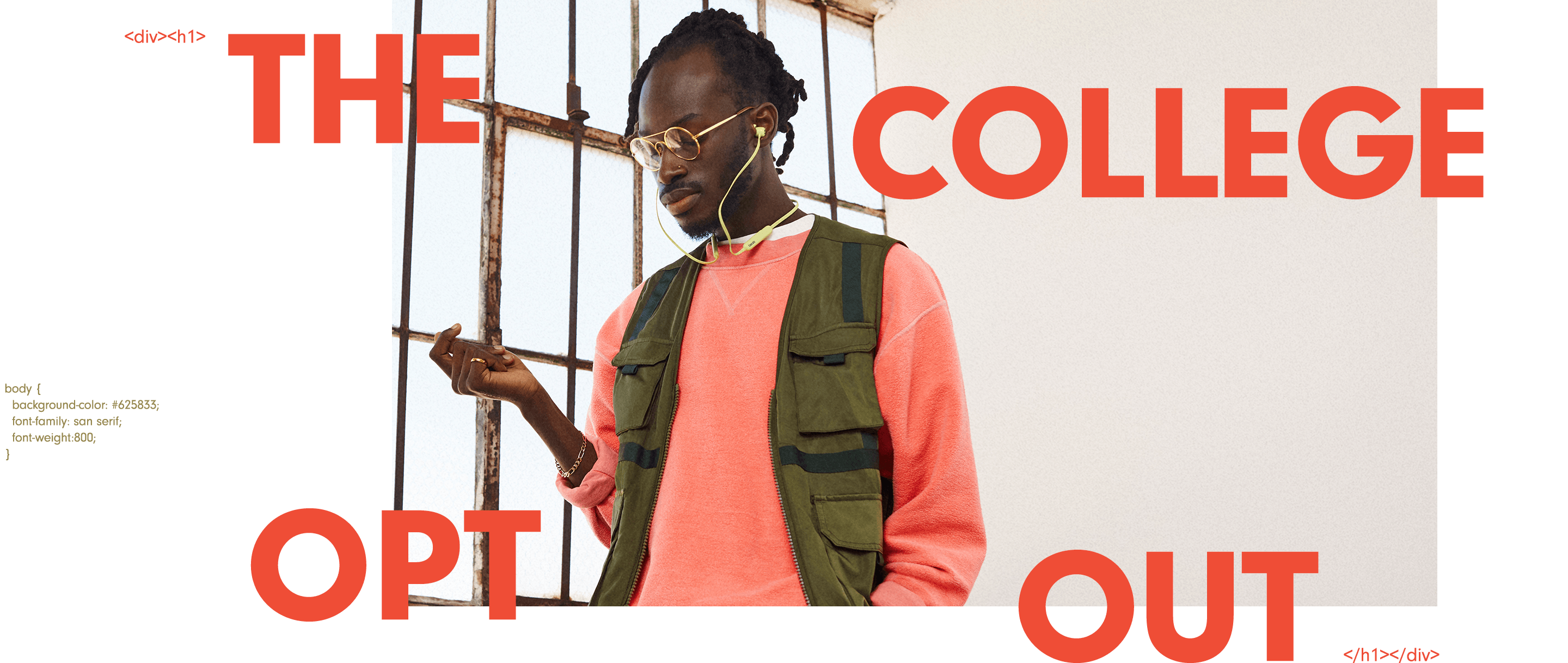
Iddris was accepted on a full-ride scholarship to a prestigious tech university in Massachusetts. He could’ve gone anywhere he wanted to go. But he decided to forgo the entire college experience. He couldn’t afford it. Not the money — the time.
“I couldn’t afford to go into a four-year program to then come back after and talk about how technology is depriving us — that it would be too late,” Iddris said. “I couldn’t afford to not convey the message now.”
He had to start empowering now. To start spreading his ideas. To pave a new path for Black and Brown people in technology. He created the world’s first smart retail experience, consulted for some of the biggest tech companies in the world, lectured at prestigious universities, encouraged more Black kids to help shape our digital future, and he’s probably up to 1,000 things he can’t talk about yet.
Iddris was accepted on a full-ride scholarship to a prestigious tech university in Massachusetts. He could’ve gone anywhere he wanted to go. But he decided to forgo the entire college experience. He couldn’t afford it. Not the money — the time.
“I couldn’t afford to go into a four-year program to then come back after and talk about how technology is depriving us — that it would be too late,” Iddris said. “I couldn’t afford to not convey the message now.”
He had to start empowering now. To start spreading his ideas. To pave a new path for Black and Brown people in technology. He created the world’s first smart retail experience, consulted for some of the biggest tech companies in the world, lectured at prestigious universities, encouraged more Black kids to help shape our digital future, and he’s probably up to 1,000 things he can’t talk about yet.
Iddris was accepted on a full-ride scholarship to a prestigious tech university in Massachusetts. He could’ve gone anywhere he wanted to go. But he decided to forgo the entire college experience. He couldn’t afford it. Not the money — the time.
“I couldn’t afford to go into a four-year program to then come back after and talk about how technology is depriving us — that it would be too late,” Iddris said. “I couldn’t afford to not convey the message now.”
He had to start empowering now. To start spreading his ideas. To pave a new path for Black and Brown people in technology. He created the world’s first smart retail experience, consulted for some of the biggest tech companies in the world, lectured at prestigious universities, encouraged more Black kids to help shape our digital future, and he’s probably up to 1,000 things he can’t talk about yet.
I couldn’t afford to go into a four-year program to then come back after and talk about how technology is depriving us — that it would be too late. I couldn’t afford to not convey the message now.
I couldn’t afford to go into a four-year program to then come back after and talk about how technology is depriving us — that it would be too late. I couldn’t afford to not convey the message now.
I couldn’t afford to go into a four-year program to then come back after and talk about how technology is depriving us — that it would be too late. I couldn’t afford to not convey the message now.
“I’m just fully focused, working on the future of what an operating system can look like, what technology can look like, created through the lens of a Black creator,” Iddris says.
“I’m just fully focused, working on the future of what an operating system can look like, what technology can look like, created through the lens of a Black creator,” Iddris says.
“I’m just fully focused, working on the future of what an operating system can look like, what technology can look like, created through the lens of a Black creator,” Iddris says.
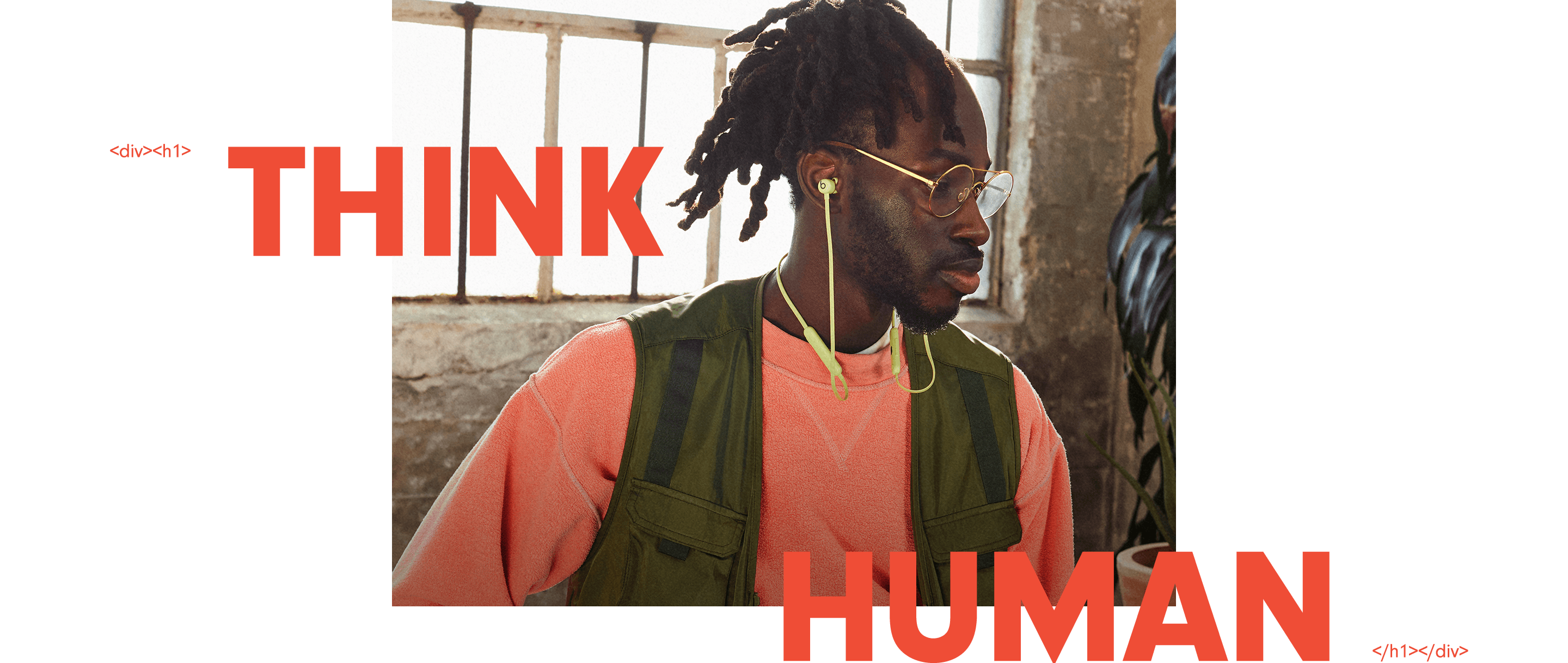
Iddris says he and future innovators are tasked with freeing people instead of creating technologies that confine us, keep us addicted, and mold our behaviors for the worst. They’ll need to focus on empathy, and the spiritual wellness of technology.
“You want to solve algorithm bias? Let some Black people create some technology. That’s your answer. Because when we create, we don’t just create for us. We create for everybody.”
Iddris says he and future innovators are tasked with freeing people instead of creating technologies that confine us, keep us addicted, and mold our behaviors for the worst. They’ll need to focus on empathy, and the spiritual wellness of technology.
“You want to solve algorithm bias? Let some Black people create some technology. That’s your answer. Because when we create, we don’t just create for us. We create for everybody.”
Iddris says he and future innovators are tasked with freeing people instead of creating technologies that confine us, keep us addicted, and mold our behaviors for the worst. They’ll need to focus on empathy, and the spiritual wellness of technology.
“You want to solve algorithm bias? Let some Black people create some technology. That’s your answer. Because when we create, we don’t just create for us. We create for everybody.”
Ending algorithm bias, and creating a better tomorrow, will be a matter of more people like Iddris in places of power in technology. Black people, Brown people, people with diverse backgrounds and experiences, all having a say in how information and technology interacts with humanity. The wider the scope of its creators, the easier it is to create platforms that consider and uplift everyone.
Ending algorithm bias, and creating a better tomorrow, will be a matter of more people like Iddris in places of power in technology. Black people, Brown people, people with diverse backgrounds and experiences, all having a say in how information and technology interacts with humanity. The wider the scope of its creators, the easier it is to create platforms that consider and uplift everyone.
Ending algorithm bias, and creating a better tomorrow, will be a matter of more people like Iddris in places of power in technology. Black people, Brown people, people with diverse backgrounds and experiences, all having a say in how information and technology interacts with humanity. The wider the scope of its creators, the easier it is to create platforms that consider and uplift everyone.
I'm just fully focused, working on the future of what an operating system can look like, what technology can look like, created through the lens of a Black creator.
I'm just fully focused, working on the future of what an operating system can look like, what technology can look like, created through the lens of a Black creator.
I'm just fully focused, working on the future of what an operating system can look like, what technology can look like, created through the lens of a Black creator.
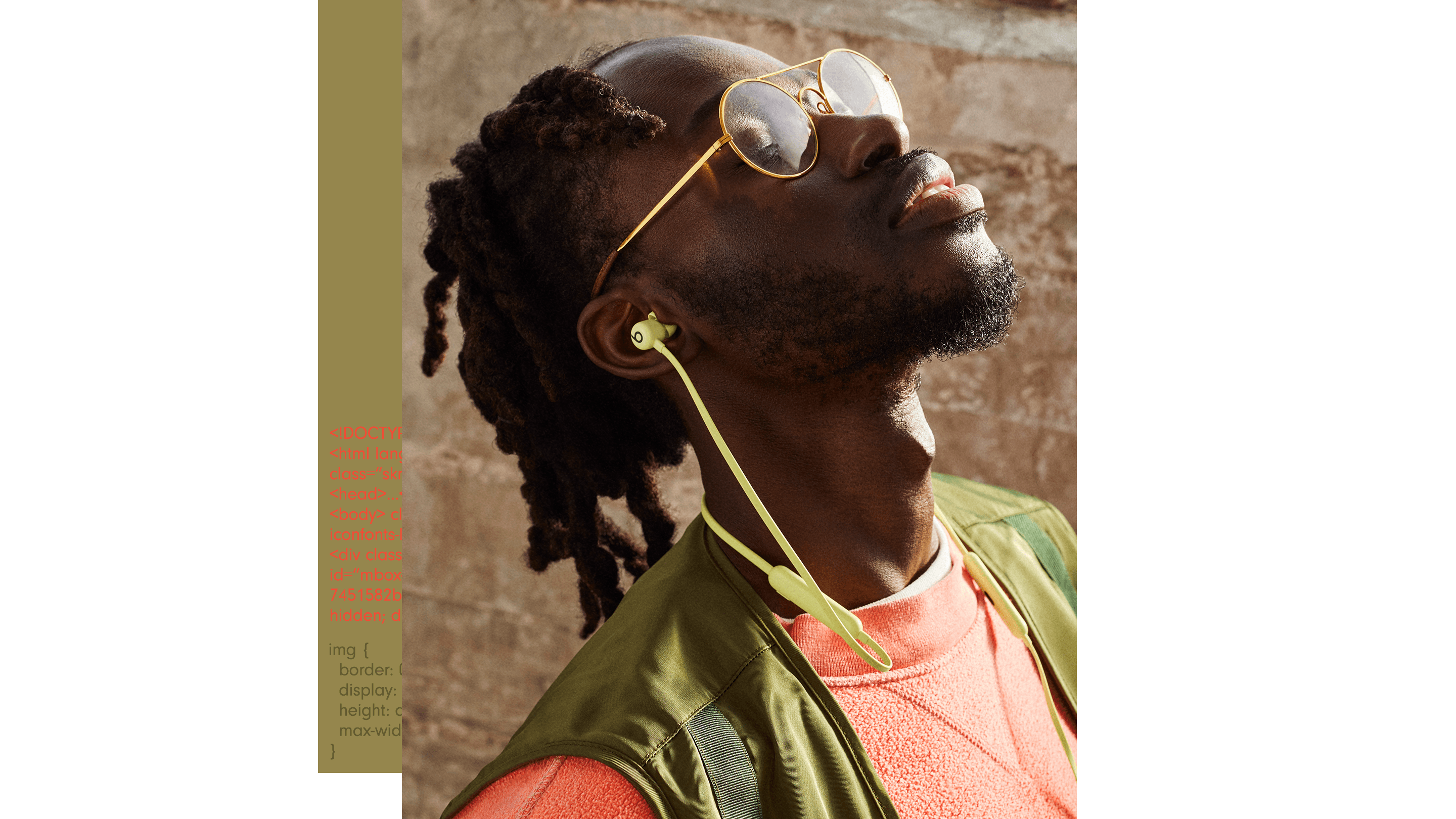
“Let some Black people create some technology,” Iddris says. “Because when we create, we don't just create for us. We create for everybody.”
As he and future generations code a path to a better future, Iddris will do it with spiritual urgency. Because at the end of the day, technology is supposed to improve humanity. If it doesn’t move us forward — what’s the point?
“When in doubt, think as a human, not as an algorithm,” he says.
“Let some Black people create some technology,” Iddris says. “Because when we create, we don't just create for us. We create for everybody.”
As he and future generations code a path to a better future, Iddris will do it with spiritual urgency. Because at the end of the day, technology is supposed to improve humanity. If it doesn’t move us forward — what’s the point?
“When in doubt, think as a human, not as an algorithm,” he says.
“Let some Black people create some technology,” Iddris says. “Because when we create, we don't just create for us. We create for everybody.”
As he and future generations code a path to a better future, Iddris will do it with spiritual urgency. Because at the end of the day, technology is supposed to improve humanity. If it doesn’t move us forward — what’s the point?
“When in doubt, think as a human, not as an algorithm,” he says.